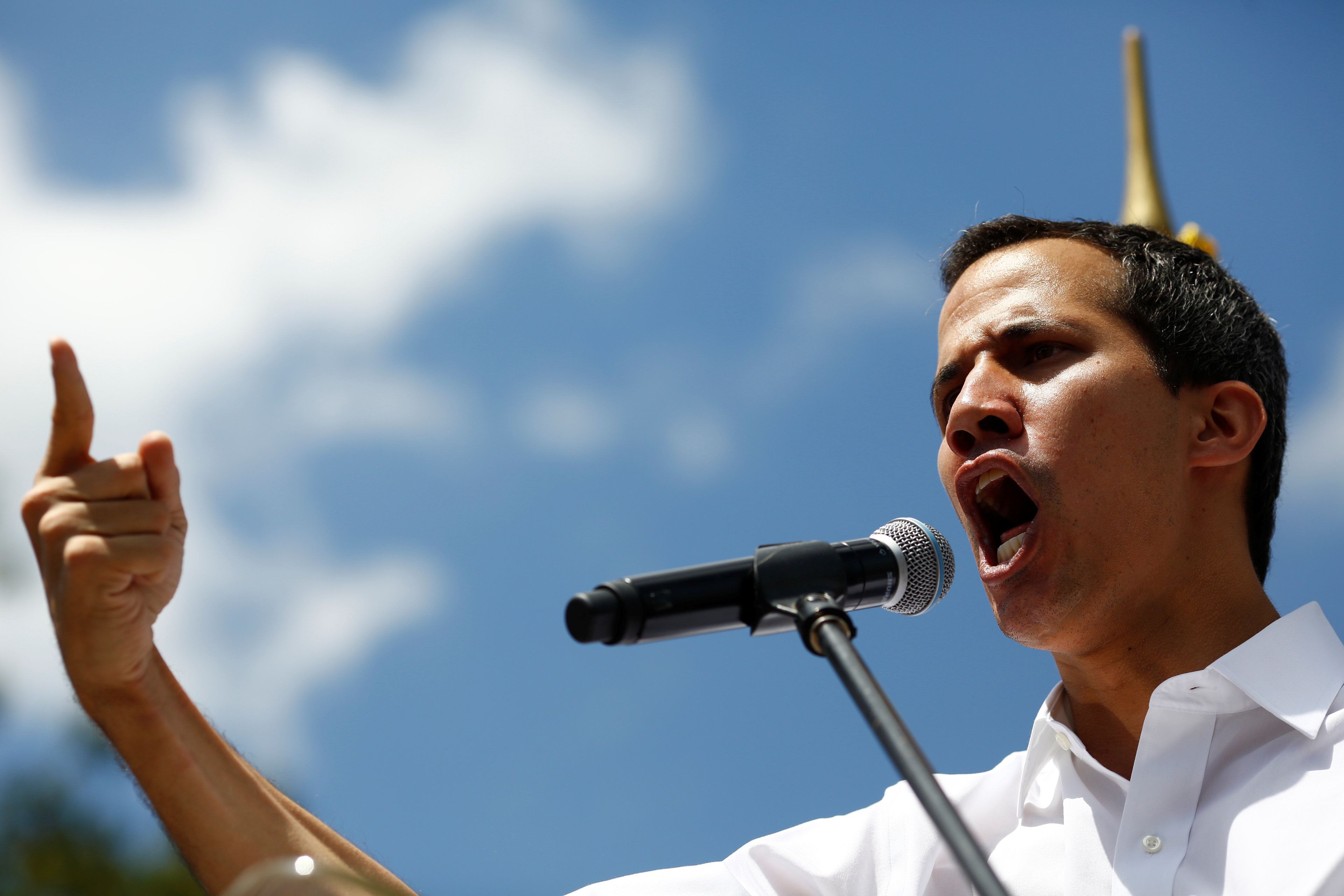February 22, 2019
On Saturday, emergency supplies of food and medicine are expected to arrive in Venezuela by land and sea. Venezuela's military, still loyal to President Nicolas Maduro, vows to stop the aid from entering. In a time of national crisis, the credibility of both the government and the opposition is now squarely on the line.
Venezuela's opposition says the relief supplies will provide desperately needed help for the country's suffering people. Maduro, his supporters, and military backers insist the aid deliveries represent a foreign invasion designed to force regime change. The rhetoric has gotten hot, and Washington is directly involved: Donald Trump, who supports Venezuela's opposition, says Maduro's military men risk "losing everything" if they stop the aid delivery, and Maduro threatens "another Vietnam" if the US tries to oust him by force. Delcy Rodriguez, Maduro's vice president, says the food and medicine are poisonous and can cause cancer.
Opposition leader Juan Guaido—recognized as Venezuela's legitimate president by the US, Canada, Brazil, Argentina, Chile, Japan, and many European countries—says the opposition will surround all of Venezuela's military bases to demand delivery of aid. He and allied lawmakers are currently embarked on an almost 500-mile trek from the capital, Caracas, to the Colombian border to welcome cargo arriving by truck.
Maduro has threatened to close that border, but blocking the flow of aid won't be that easy. He has also pledged to close the border with Brazil after that country's government promised to deliver supplies into Venezuela. On Wednesday, a boat carrying 250 tons of aid left Puerto Rico headed for Venezuela, and Maduro's government announced it had closed Venezuela's maritime borders with the Caribbean islands of Aruba, Curacao, and Bonaire to keep the shipment out.
The political angle: But tomorrow's showdown is about much more than aid – the supplies piled on the Colombian border can feed 5,000 Venezuelans for ten days, but the country's needs are much, much greater than that. It's also about political leverage. Who will claim credit for providing for Venezuela's people?
This is one of those events that offers political opportunities to both sides. Maduro critics say he'll block shipments of humanitarian aid because he'd rather starve his country than allow someone else to gain credit for helping its people. Maduro backers point to the American flag decals on many cargo containers as proof that Guaido is an American agent and that aid shipments are a Trojan Horse attack on Venezuela's government.
The bottom line: The future of Maduro's government continues to depend on Venezuela's military. This showdown will test its loyalties in new ways.
From Your Site Articles
- World in 60 Seconds: Crisis in Venezuela - GZERO Media ›
- A Look Inside Venezuela: Beyond All Limits of Desperation - GZERO ... ›
Related Articles Around the Web
More For You
Hellenic coast guard performs SAR operation, following migrant's boat collision with coast guard off the Aegean island of Chios, near Mersinidi, Greece, February 4, 2026.
REUTERS/Konstantinos Anagnostou
15: The number of migrants who died after their boat accidentally collided with a Greek Coast Guard vessel in the Aegean Sea on Tuesday. Two dozen people were rescued.
Most Popular
Walmart is investing $350 billion in US manufacturing. Over two-thirds of the products Walmart buys are made, grown, or assembled in America, like healthy dried fruit from The Ugly Co. The sustainable fruit is sourced directly from fourth-generation farmers in Farmersville, California, and delivered to your neighborhood Walmart shelves. Discover how Walmart's investment is supporting communities and fueling jobs across the nation.
Workers repair a pipe at a compound of Darnytsia Thermal Power Plant which was heavily damaged by recent Russian missile and drone strikes, amid Russia's attack on Ukraine, in Kyiv, Ukraine February 4, 2026.
REUTERS/Valentyn Ogirenko
Democratic Alliance leader John Steenhuisen announced Wednesday that he will not run for a third term as leader of the liberal, pro-business party, after months of internal pressure over a host of controversies – including allegations, since cleared, that he used the party credit card for Uber Eats.
© 2025 GZERO Media. All Rights Reserved | A Eurasia Group media company.
